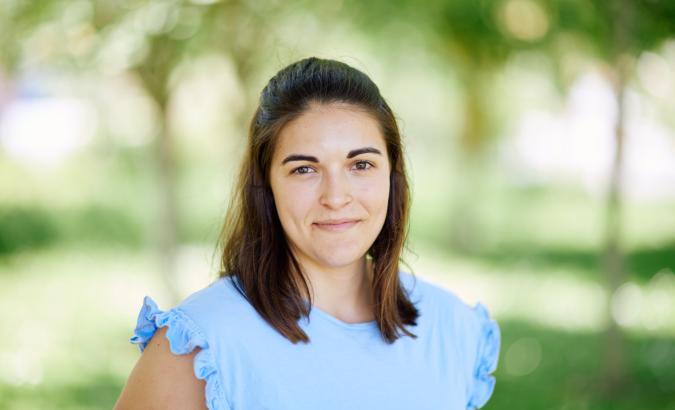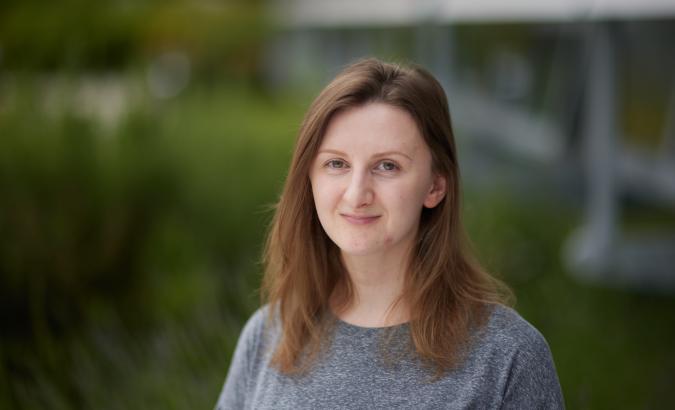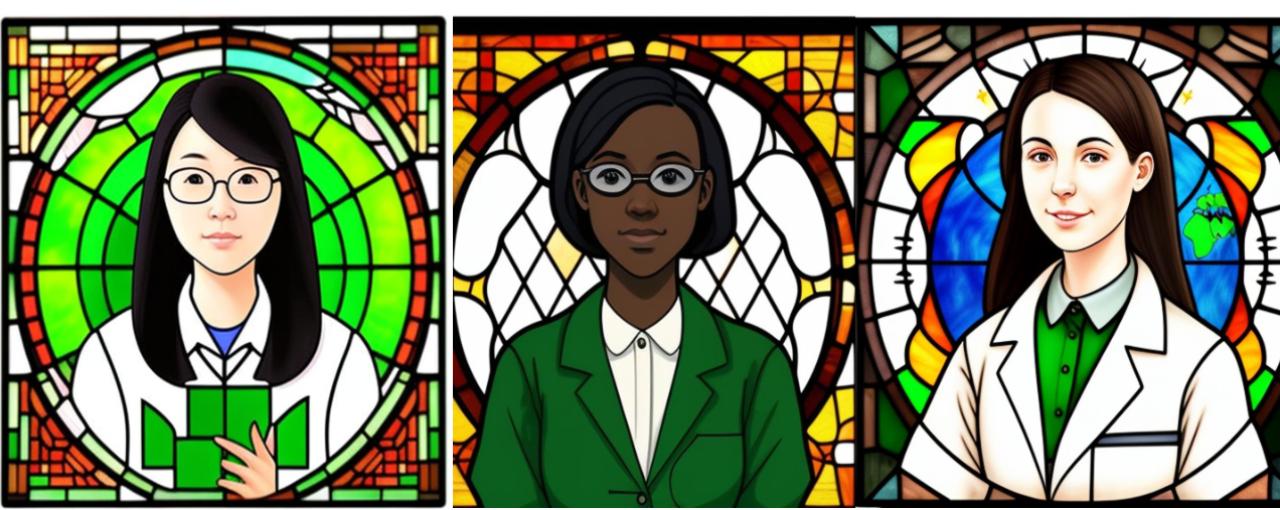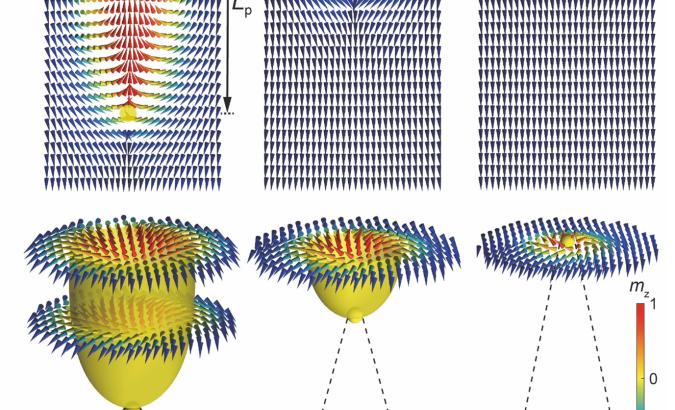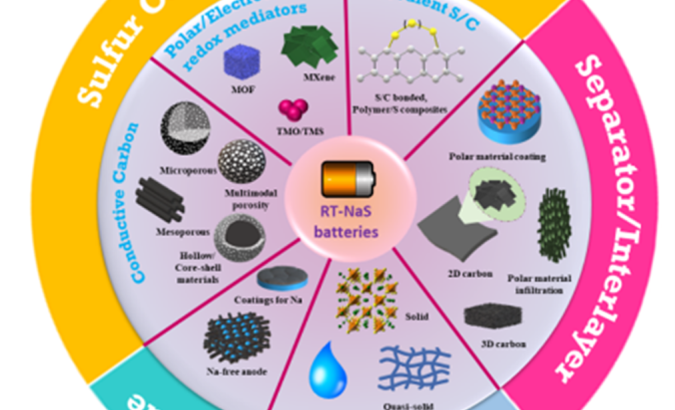Friday 23rd June is International Women in Engineering Day. At the Research Complex at Harwell, we are proud to celebrate the achievements of women in the field of engineering. Based at the Research Complex, UK Catalysis Hub plays a crucial role in advancing the field of catalysis. To honour some of the remarkable women who make up UK Catalysis Hub and we are fortunate to be able to speak with PhD students, Lisa and Sofia, who are making significant contributions to the world of engineering.
Lisa Allen and Sofia Mediavilla-Madrigal are exceptional young scientists who have chosen to pursue careers in catalytic research and are working on their PhDs with UCL and Cardiff University respectively. They are both part of Andrew Beale's research group as part of UK Catalysis Hub based at Research Complex at Harwell
The journey towards a PhD began early for both Lisa and Sofia, as they nurtured their passion for science during their undergraduate studies and even earlier. Sofia says "Ever since my early year in high school, I found science subjects interesting, which led me to apply for a degree that combined several of those, namely chemistry, physics and mathematics.” Lisa agrees "I've always been interested in science. During my A-Levels, I chose chemistry as my undergraduate degree as it is complimentary to so many fields of science." Their strong foundation in science paved the way for their decision to pursue higher education and delve deeper into their respective fields of study.
Lisa has now almost finished her PhD in the advanced characterisation of industrially relevant heterogeneous catalysts, specializing in operando techniques and has recently been offered a position as an industrial research scientist. "I was looking for research with real-world applications e.g. industrial use or medical use," Lisa explains. “This is why I chose my current project, characterising industrial catalysts, as it felt like a good match in terms of what I enjoy about chemistry and my motivation to work on real, applicable systems". She credits her passion for material characterization to a Masters’ project she completed with 1st Class Honours at Cardiff University, where she synthesized and characterized magnetic nanostructures for medical screening. This experience sparked Lisa's enthusiasm for material characterization and, after a well-deserved gap-year, paved the way for her PhD and career in catalysis.
Similarly, Sofia Mediavilla-Madrigal chose her PhD project after experiencing time abroad,
"My interest in catalysis grew during my year abroad, as most of my electives evolved around this topic, which I found pretty fascinating and so vital in the development of new technologies," she explains. Sofia completed a MEng in Chemical Engineering at Imperial College London in 2020, with a year abroad at the National University of Singapore. "I'm currently working on the application of advanced characterisation techniques, such as combined X-ray methods and infrared spectroscopy, on catalysis." Her PhD, on the characterisation of novel trimetallic catalysts for CO2 activation using spectroscopy and X-ray methods under in-situ and operando conditions is due to be completed this year. Sofia has hopes that her PhD, and catalytic research can help us to create a better, greener world "I really hope that the research we've conducted can led to actual changes in the industry, aiming to move towards a greener economy." she says.
Both Lisa and Sofia have faced challenges in their journey as women in engineering, but they have overcome them with determination. At first Lisa found the inconsistencies of a PhD world load hard to get to grips with "Scientific Research doesn't work to a perfect schedule" Lisa admits "There are times when you don't have any particular deadlines, can work on some side projects etc. but then there are also times when everything happens at once! Beam time preparation, conference abstract deadlines and finishing laboratory work all in the space of a couple of days!" This can be difficult, and cannot be avoided "You need to make a decision on the priority of work" Lisa agrees.
As well as being a high pressure environment, being a catalysis PhD student can be feel like having to learn another language at first. “It was fairly complicated to get up to speed and learn so much about the topic of interest from a completely different perspective. It was very tough to follow discussions with other researchers in the field, as I wasn't familiar with most of the jargon used. “Sofia explains, highlighting the challenges she faced as an engineer coming from a heavily math-focused background. Lisa also recalls questioning her abilities early on in her PhD journey. "I remember doubting whether I have the skills to complete this project, or whether my experimental plans would yield good quality results," Lisa confesses. However, with the support of their colleagues, supervisors, and a strong network of mentors and friends, both Lisa and Sofia were able to overcome their doubts and struggles and gain confidence in their abilities as scientists. Sofia says "Thanks to their support, I'm able to present my work to a specialised audience confidently, as well as join in discussions." Being encouraged and supported to present her work at conferences and group meetings also helped boost Lisa's confidence, "I feel more well-rounded as a scientist for having gone through this, as I can see the gaps in my knowledge and that doesn't make me anxious anymore, it gives me motivation to learn further," Lisa says.
The challenges faced by Lisa and Sofia in their PhD journeys are not uncommon in the scientific community. In fact, many researchers experience feelings of insecurity, fear, and stress during their PhD programs. It is important to recognize that the PhD process can be overwhelming, with various responsibilities and changes in professional roles. PhD programs can pose several challenges to students in terms of training and navigating the expectations that come with pursuing a career in academia. Young women can be particularly affected by these challenges, as they may face additional obstacles due to gender biases and stereotypes in the scientific field. According to previous studies, women in STEM fields may perceive more challenges when it comes to combining career and family responsibilities. These challenges can sometimes lead to self-doubt and a questioning of one's abilities. However, Lisa and Sofia's experiences highlight the importance of a supportive environment and mentorship in overcoming these challenges.
We asked Lisa and Sofia whether they believed any changes were needed in the scientific system to be more attractive to women in science and possible future scientists. Lisa believes that introducing girls to STEM at an early age is crucial in sparking their interest and making science relatable and fun for them "actually showing children the huge range of opportunities in STEM is essential," she says "I believe introducing girls to STEM earlier in their lives is important, and making science relatable and fun for children should be a priority." Sofia also acknowledges the importance of early exposure to STEM fields and believes that steps have already been taken to make scientific degrees and careers accessible and attractive to all. "It all truly starts when kids are at school" Sofia says, "so it would be nice if more schools organised presentations (kind of meet and greets) with female leaders in various scientific fields so that they would realise that everyone, regardless of their gender, can have a successful career in science"
Despite efforts to promote gender equality in STEM fields, there are still persistent stereotypes and biases that can deter girls from pursuing careers in science. This is why it is so important to promote event such as International Women in Engineering Day to highlight the achievements of women in engineering and inspire young girls to consider a future in this field. One of the key factors in encouraging girls to pursue careers in STEM is the presence of female role models; Lisa and Sofia are both excellent examples of successful women in engineering who can serve as inspiration for aspiring young scientists. We are exceptionally proud to work with and know them.


